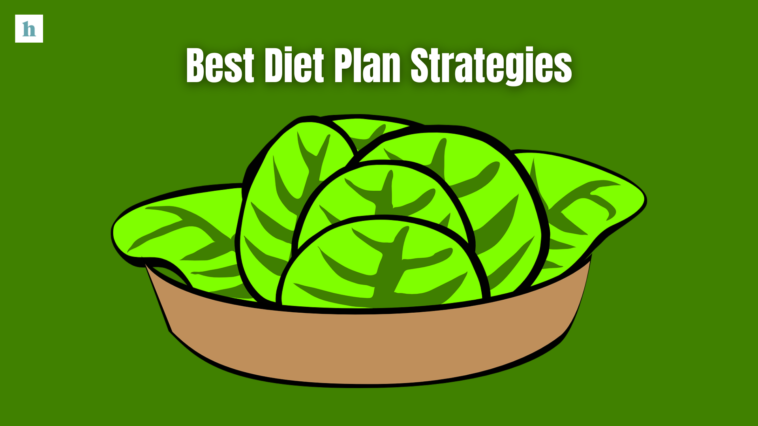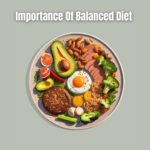In today’s fast-paced world, taking care of our health is more important than ever. Choosing the right diet plan can greatly improve our well-being. By focusing on personalized nutrition, we can boost both our physical and mental health.
Top diet plans help us create a diet that fits our unique needs. Studies show that eating right is key to doing well in life and feeling great. This guide will show us how to make better food choices for better health.
Understanding the Importance of a Balanced Nutrition Strategy
Getting a balanced nutrition plan is key to good health. It means eating a variety of foods from different groups. This way, you get all the vitamins and minerals your body needs to work right and stay healthy.
What is Balanced Nutrition?
Balanced nutrition means eating the right amount of proteins, carbs, fats, fruits, veggies, whole grains, lean meats, and healthy fats. This mix helps prevent nutritional shortages and keeps you healthy. It also keeps your energy up and improves your life quality.
The Role of Macronutrients and Micronutrients
Macronutrients like proteins, carbs, and fats give you energy and help muscles heal and grow. They’re crucial for your body’s functions. Micronutrients, like vitamins and minerals, are also key. They help with your immune system, bone health, and thinking skills. Eating enough of both kinds is vital for good health.
Creating Healthy Eating Habits that Last
Building lasting healthy eating habits is key to nutrition success. Meal prepping can make it easier to follow a balanced diet. Eating mindfully, like enjoying your food and listening to your body, helps you connect with what you eat. These habits can change how you view food, improving your health and reaching your wellness goals.
| Macronutrients | Role | Sources |
|---|---|---|
| Proteins | Muscle repair, tissue growth | Chicken, fish, beans, nuts |
| Carbohydrates | Primary energy source | Whole grains, fruits, vegetables |
| Fats | Hormone regulation, nutrient absorption | Avocados, olive oil, seeds |
| Micronutrients | Function | Food Sources |
|---|---|---|
| Vitamin C | Immune function, skin health | Citrus fruits, bell peppers, broccoli |
| Calcium | Bone health | Dairy, leafy greens, fortified foods |
| Iron | Red blood cell production | Red meat, legumes, spinach |
Best Diet Plan: Tailoring Your Approach for Success
Starting with an effective diet plan means looking at your eating habits. It’s key to understand how these habits affect your health. This helps create a plan that fits your specific needs.
Evaluating Your Current Eating Patterns
To make a meal plan that works, first look at what and how often you eat. Keeping a food diary can show patterns that affect your diet. Think about these points when checking your eating habits:
- How often you eat meals and snacks
- The size of your meals
- The kinds of food you eat
- How emotions make you eat
Personalized Meal Plans for Individual Needs
Having a meal plan made just for you is key. It should fit your likes, any food limits, and health goals. Good meal planning means:
- Offering vegetarian or vegan choices
- Supporting keto and low-carb diets
- Incorporating Mediterranean diet foods
- Adjusting portions based on age and gender
Using a nutrition and fitness guide helps make these plans. They should be balanced with the right amount of nutrients. Being able to change your diet as your health needs change is important.
The Impact of Lifestyle on Diet Choices
Understanding how your lifestyle affects your diet is key to keeping healthy habits over time. Things like:
- Your level of activity
- Your work and family life
- What others think
Can really change what you eat. Planning meals for a busy life helps you stick to your diet plan. Changing when and how you prepare meals can make it easier to keep up with your diet, no matter what.
Effective Weight Loss Programs and Their Benefits
Starting a weight loss program needs careful planning and commitment. It’s key to set realistic goals. Slow changes often lead to better results than quick fixes. This part talks about key parts of losing weight, like diet and exercise, and how to track your progress.
Setting Realistic Weight Loss Goals
Setting achievable weight loss goals is vital for a lasting approach to losing weight. Experts suggest losing 1 to 2 pounds a week. This slow pace lets your body adjust and builds healthier habits. Having clear, specific goals helps you stay motivated and on track.
Combining Diet and Exercise for Optimal Results
Combining diet and exercise is key for the best weight loss results. Eating a balanced diet helps with fat loss and overall health. Regular workouts burn calories and build muscle, which can increase your metabolism. These two together make a strong plan for losing weight and keeping the results.
Monitoring Your Progress with Meal Planning for Weight Loss
Good meal planning is crucial for weight loss. Keeping track of what you eat helps you understand your habits and make changes.
Conclusion
Effective weight loss plans are key to losing weight successfully. Setting achievable goals and staying active boosts the effects of diet changes. Making meal plans that fit your life helps you stick with your health goals without feeling left out.
Look at your eating habits now and think about changing them. Start following the balanced nutrition principles. Make food choices that suit your needs. This is crucial for long-term health and well-being, leading you to lasting wellness success.



